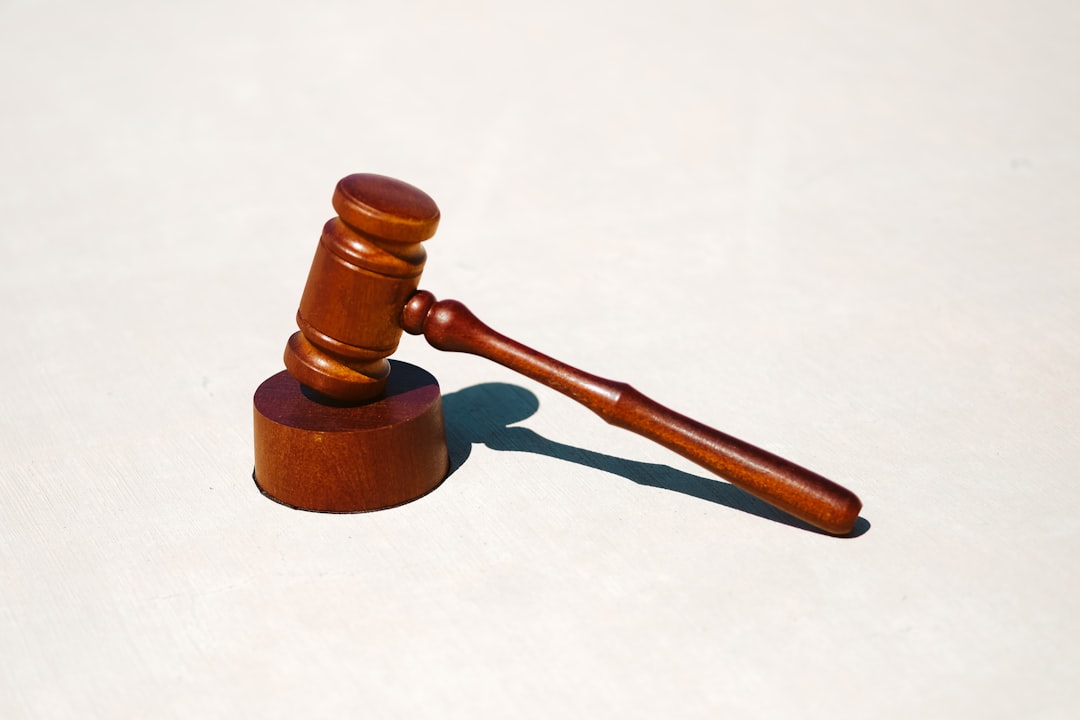Residents of Washington, D.C., can protect themselves from illegal debt calls by understanding and asserting their rights under the city's Do Not Call Law, which prohibits harassment from debt collectors and law firms without prior consent. Documenting persistent or abusive calls, filing complaints with the Consumer Protection Division, and consulting an attorney specializing in consumer rights are crucial steps. By being aware of common violations like unauthorized and aggressive calls, individuals can mark numbers as "Do Not Call," document them, and report them to authorities. Taking proactive measures, such as registering for the National Do Not Call Registry and verifying debt collectors' legitimacy, empowers residents to navigate debt collection practices with greater control, especially when dealing with Do Not Call law firms in DC.
In Washington, D.C., illegal debt calls can be a relentless nuisance, but understanding your rights is the first step to combating them. This guide navigates the legal landscape surrounding debt collection practices in the District, empowering residents with knowledge and action steps. From recognizing unlawful tactics to reporting these calls and protecting yourself from aggressive collectors, especially through the Do Not Call laws targeting law firms, this article offers practical strategies for reclaiming peace of mind.
Understanding Illegal Debt Calls: Rights and Protections in DC

In Washington, D.C., understanding illegal debt calls is crucial for residents to protect their rights. Debt collectors are prohibited from engaging in abusive or harassment tactics when contacting individuals about outstanding debts. According to the Do Not Call Law in DC, businesses and collection agencies must obtain prior consent before calling consumers regarding debt issues. This law ensures that citizens are not subjected to unwanted and frequent calls from debt collectors.
Knowing your rights is essential when dealing with illegal debt calls. If you receive persistent or harassing phone calls from debt collectors or law firms in DC without your permission, you have the legal right to take action. Documenting these calls, including dates, times, and any abusive language used, can be valuable evidence. Residents should then file a complaint with the Consumer Protection Division of the District of Columbia Attorney General’s Office. Additionally, considering consultation with an attorney specializing in consumer rights can provide guidance on the best course of legal action, especially when dealing with potential violations of the Do Not Call Law.
Identifying Unlawful Collection Practices

When dealing with debt collection, it’s crucial to recognize and understand unlawful practices that many collection agencies employ. One common violation is when a collector, especially law firms posing as legitimate representatives, makes unauthorized calls, often repeatedly, in an aggressive manner. This is particularly problematic for residents of DC, where such practices can be targeted at vulnerable individuals or those struggling with debt. Unlawful calls can include threatening language, misrepresenting the caller’s identity, or using tactics designed to intimidate or harass.
If you find yourself on the receiving end of these illegal debt collection calls, it’s essential to know your rights. According to consumer protection laws, companies and law firms must adhere to specific guidelines when contacting debtors. Marking such calls as “Do Not Call” can be a powerful step in halting this behavior. By documenting the calls and reporting them to relevant authorities, individuals can play an active role in stopping illegal debt collection practices, ensuring their rights are respected, and potentially preventing others from facing similar situations.
Legal Actions Against Debt Collectors: What You Can Do in DC

If you’re facing relentless illegal debt calls in Washington D.C., know that you have legal options to protect yourself. The Fair Debt Collection Practices Act (FDCPA) is a federal law designed to prevent abusive and unfair practices by debt collectors, including repeated or harassing phone calls. If a debt collector violates this act, you can take legal action.
In DC, you can file a complaint with the Consumer Protection Division of the Attorney General’s Office. You can also sue the debt collector in court for damages, which may include statutory penalties and attorney fees. Remember, it’s crucial to document every call, including dates, times, and any abusive language used by the collector. Additionally, consider blocking the caller’s number on your phone to curb further unwanted contact. As a proactive measure, you can also inform debt collectors in writing that you do not wish to be contacted by them, specifically stating “Do Not Call” and providing your written consent only for certain actions like valid legal proceedings.
Documenting and Reporting Illegal Debt Calls

When facing illegal debt calls, the first step is to document and report the harassment. Keep a detailed record of each interaction, including the date, time, and content of the call. Note any threats, aggressive behavior, or false statements made by the callers. This documentation can serve as crucial evidence if you decide to take legal action.
Additionally, report these illegal debt calls to the appropriate authorities. In Washington D.C., for instance, consumers have options like contacting the Consumer Protection Division of the Attorney General’s Office or filing a complaint with the Federal Trade Commission (FTC). Remember, reporting these incidents not only helps protect yourself but also contributes to broader efforts to combat abusive debt collection practices, including Do Not call law firms DC.
Preventive Measures: Safeguarding Yourself from Harassing Calls

To prevent illegal debt calls, there are several proactive steps individuals in Washington D.C. can take to safeguard themselves from harassment. One crucial measure is to register for the National Do Not Call Registry. By doing so, you’re signaling to debtors and collection agencies that you do not consent to receiving automated or telemarketing calls. This registry has legal backing and helps reduce unwanted calls significantly.
Additionally, it’s essential to verify the legitimacy of any debt collector contacting you. Legitimate collectors will provide validation of the debt, including the name of the original creditor and the amount owed. If a caller refuses or is unable to provide this information, it’s a strong indication that the call may be illegal. You have the right to request written confirmation of any debt and to dispute inaccurate claims, ensuring your protection from abusive collection practices.






